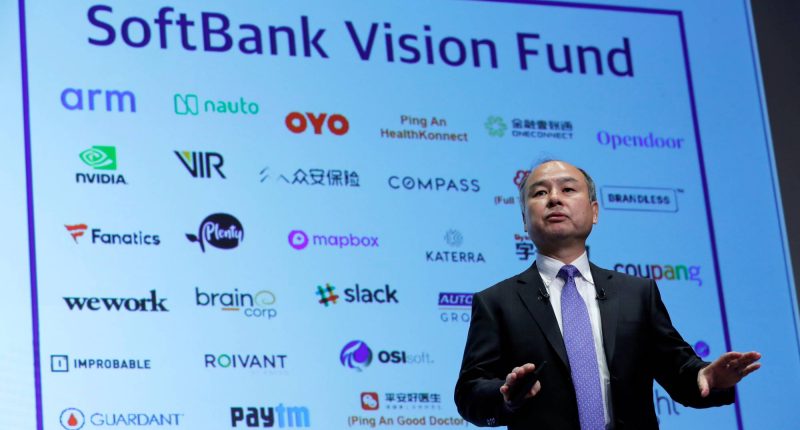SoftBank group continues to get the short end of the stick. In complete contrast to this time last year, Softbank has reported losses to the tune of a staggering $13 Billion (1.7 trillion yen) during the fiscal year which ended on March 31. SoftBank had logged in a healthy profit last year, totalling an impressive 4.99 trillion yen.
SoftBank’s last year’s highs came from riding the backs on impressive performances by multiple tech conglomerates, prominently South Korean ecommerce platform Coupang and Southeast Asian ride-hailing startup Grab.
The fiscal year has been tough for all VC groups in general, but the perfect storm has been brewing for SoftBank, whose moves are overseen by CEO Masayoshi son. Share prices for both Coupang and Grab fell steeply, around 60-70%.
As the entire world reels from the consequences of the Russia-Ukraine war, SoftBank had many other problems on their plate. Chinese administration’s crackdown on the tech sector, along with increasing federal interest rates, have brought down tech company share prices. SoftBank’s strategy takes a direct hit as all these factors combine.
Coupang and Grab were among the top disappointments for the VC group, but the undisputed leader for their losses was Chinese Ride-hailing startup Didi, which went public last year, only to be taken away by the Chinese regulatory storm to the point of delisting from the US Indices. Chinese e-commerce giant Alibaba also became a spot of bother for them, as Alibaba also saw steep falls as a result of Chinese regulatory crackdown.
SoftBank has failed to hit the spot on 32 out the 34 total companies on their portfolio. Major contributors to this poor performance were Coupang ($5.4 billion), Grab Holdings Ltd. ($2.4 billion), Didi ($2.4 billion), Paytm ($1.3 billion) and Food delivery company DoorDash Inc. ($1.1 billion).
As the confidence of investors starts to fall along with the share prices of their portfolio companies, CEO Masayoshi Son has acknowledged the losses and has admitted SoftBank’s need to go on the defensive. In an earnings call on Thursday, Son said they might be looking to cut their startup investment margin by half. “It depends on our LTV levels and investment opportunities, and we strike balance, but I will say compared to last year, the amount of new investments will be half or could be as small as a quarter,” he said.
In the previous quarter ending March 31st, Softbank invested $2.5 billion, markedly lower than previous quarterly numbers of $10.4 billion, $12.8 billion, $20.9 billion and $11.3 billion.
SoftBank is a vital part of India’s venture capital ecosystem, as they have backed multiple companies which are now household names, including Paytm, Flipkart, Ola, Oyo, Swiggy, Delhivery, InMobi, and Lenskart. Over the last fiscal year, the Indian company Policy Bazaar brought in a $300 million profit margin. The hit on their reputation has been very visible in the Indian market as well, since despite their history of turning companies into unicorns, with CommerceIQ being the latest, Delhivery were anything but happy at the prospect of a SoftBank cheque.
Dan baker from Morningstar Inc., remains confident in the group’s future, since despite the volatility involved in their strategy, SoftBank are just too big to falter to a setback like this. “It’s not for everyone, But if you’re willing to accept the volatility, then if you look at the long-term performance of the company, it’s actually been pretty decent,” he said.
The Tech Portal is published by Blue Box Media Private Limited. Our investors have no influence over our reporting. Read our full Ownership and Funding Disclosure →






